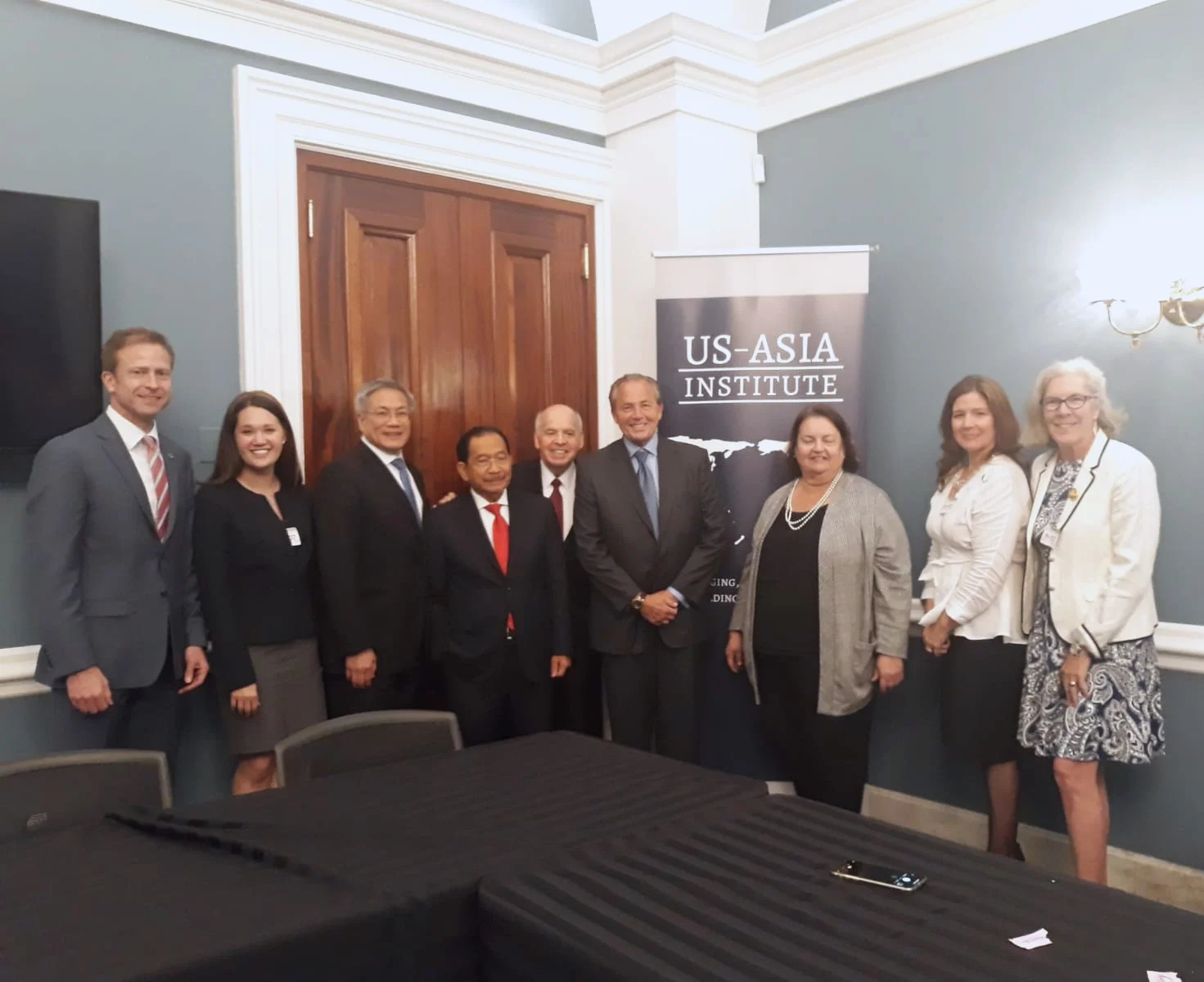




On May 15th, 2019, the US-Asia Institute’s Global Leadership Board hosted a round table luncheon titled “Improving US-Indonesia Relations Through Soft Power” on Capitol Hill. The lunch was organized around a presentation by business leader Mr. Tanri Abeng, member of the US-Asia Institute’s Global Leadership Board, and president commissioner of Pertamina, the second-largest crude oil producing company in Indonesia. In his speech, Mr. Abeng reviewed current US-Indonesia relations, and offered key insight into the challenges Indonesia faces, and how his proposed exchange program Top Talent 200 (TT-200), will help train Indonesian leaders to better lead the country. Through its rigorous selection process, and linking together of upcoming Indonesian industry practitioners with established leaders from US private and state-owned corporations, political parties, and legislative and executive bodies, TT-200 intends to raise a new crop of Indonesian leaders. The goal is to provide them with the skills they’ll need to navigate the shoals of international business and relations. Mr. Abeng also plans to eventually expand TT-200 within the ASEAN community, creating leadership training programs between for example Thailand and Indonesia.
The program began with opening remarks from the Chairman of US-Asia Institute, Mr. Glenn Lau-Kee. The opening introduced the proposed program and its fundamentals, business and education. After, it moved into Mr. Abeng’s presentation, wherein he shared his vision for the TT-200 program, and discussed some main issues regarding US-Indonesia relations. This was followed by an open exchange of ideas with the attendees, moderated by Dr. Pek Koon Heng-Blackburn from American University. The event was closed by Mr. Kenneth Walsh, chairman of US-Asia Institute’s Global Leadership Board and managing director of Fairfield Maxwell SEA in Jakarta, Indonesia. The event was attended by former ambassadors, leaders from congressional offices, representatives from the US Department of State, Indonesian Embassy, academics from University of Buffalo, American University, and University of California, and officials from the US-ASEAN Business Council, McLarty and the Atlantic Council and Congressional Research Service, and others.
The open exchange of ideas was dynamic. The conversation found itself navigating a multitude of terrains, namely education, business and leadership. Some of the pertinent questions covered were:
How did business develop in Indonesia and ASEAN?
What are the biggest issues in building strong US-Indonesia and US-ASEAN economic ties?
Are there current US policies that are acting as roadblocks?
What is the new higher education policy in Indonesia?
What cross cultural opportunities would have the biggest impact? How can Americans participate in developing future leaders in Asia?
Finding the answers to these questions was of top priority.
The program was conducted over a delicious meal within the US Capitol Building. Guests titillated their appetites with refreshing salads of spinach and strawberries or crispy lettuce and cheese. These were downed along with a thirst quenching iced tea, perfect to help them cool off from the heat of Washington, DC. This was followed by a main course, a choice fresh salmon or savory chicken. Slices of sweet chocolate cake were eaten for dessert.







